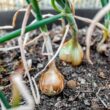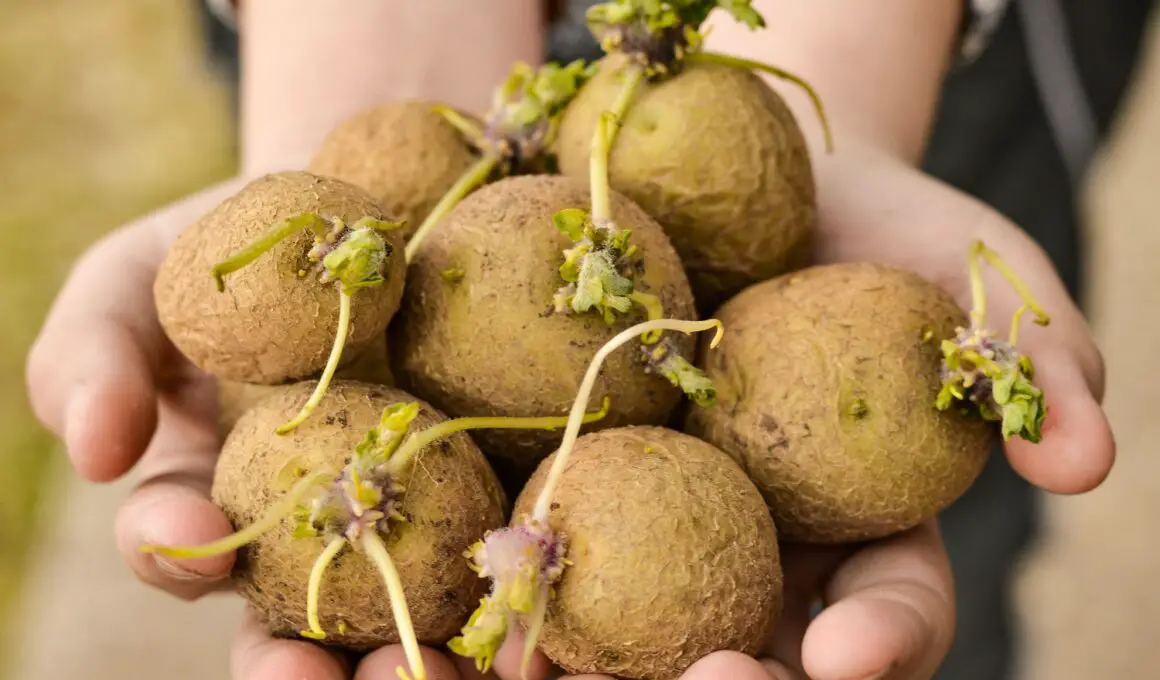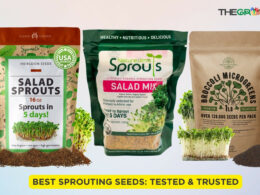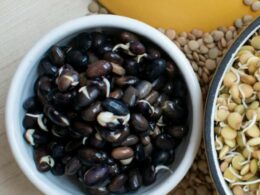In This Article Show
Today, we will tackle a common challenge that every spud cultivator faces – speeding up potato sprouting. You know the anticipation of planting spuds if you’re anything like me. But let’s cut to the chase – time is of the essence, and we want those potatoes poking through the soil sooner rather than later.
Whether you’re a backyard gardener or a small-scale farmer, the techniques discussed here are designed to work with you, not against you.
How to Speed up Potato Sprouting
Here are nine ways to hasten your potato sprouts;
1. Choose the Right Seed Potatoes
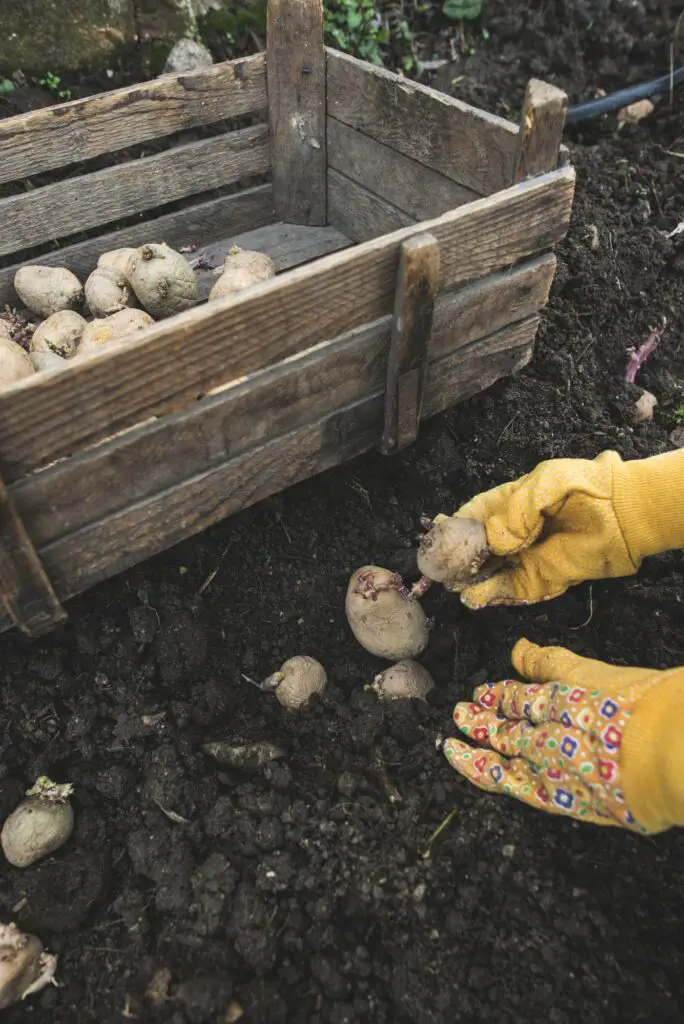
When it comes to accelerating the sprouting game, it all starts with the right seed potatoes. Quality is king, especially when it comes to seed potatoes. Your potato patch’s success hinges on the health and vitality of the seeds you plant. Opting for certified seed potatoes from reputable sources ensures disease-free, vigorous starters for your spud adventure.
These certified tubers come with a seal of approval, indicating they’ve undergone rigorous testing and meet the highest standards. Investing in quality seed potatoes sets the foundation for a bountiful harvest and, you guessed it, faster sprouting.
2. Proper Storage Techniques
Now that you’ve got your hands on top-notch seed potatoes, proper storage is the next crucial step in turbocharging sprouting speed.
Get Gardening For Beginners
Our new EBOOK shows newcomers and green thumbs alike a step by step guide to growing the garden of their dreams.
Storing your seed potatoes in the right conditions is akin to creating a cozy home for your plant embryos. Aim for a cool, dark, and well-ventilated storage space. Potatoes prefer temperatures between 45°F to 50°F (7°C to 10°C) – a sweet spot that keeps them dormant without risking chilling injury.
Avoid exposing them to direct sunlight, which can induce sprouting prematurely. A cool, dark corner is the potato equivalent of a five-star hotel.
3. Chitting Techniques
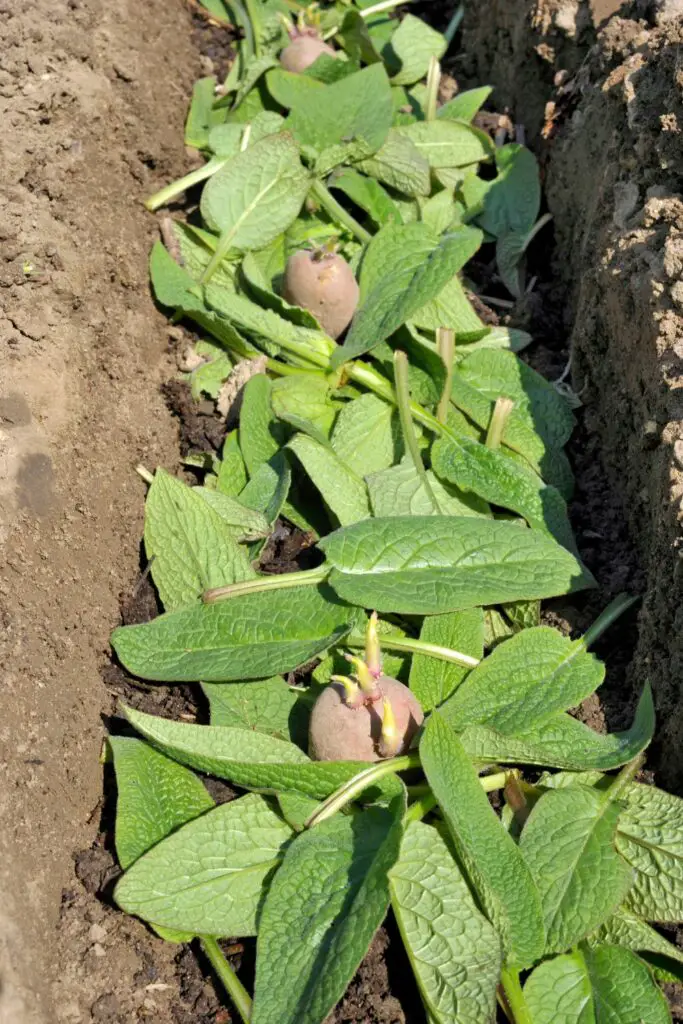
Chitting might sound like a term from a secret gardening society, but fear not, it’s a simple yet effective technique to boost your potato sprouting game. Chitting is the process of encouraging potato tubers to sprout before planting. Essentially, it’s a kickstart for those spuds, awakening them from their dormancy.
Exposing the seed potatoes to light initiates the development of sturdy sprouts, ready to burst forth when planted. This pre-sprouting ritual is particularly beneficial for those of us craving an early harvest and a uniform crop.
4. Soil Preparation
With your seed potatoes chitted and ready for action, it’s time to shift our focus below ground level. Soil preparation is the unsung hero of successful potato sprouting. Think of the soil as the cozy cradle where your potatoes will spend their formative days. Well-prepared soil sets the stage for healthy sprouting and robust growth.
Loose, well-aerated soil allows developing roots to navigate with ease, while proper drainage prevents waterlogged disasters. Creating this optimal environment ensures that your seed potatoes encounter minimal resistance as they embark on their upward journey
5. Adequate Watering

In the grand symphony of potato cultivation, water is the conductor that ensures each note plays in harmony. Picture this: your seed potatoes have broken free from their dormant state, tiny sprouts reaching for the sky. Now, they’re relying on you to be their hydration maestro. Proper watering during the sprouting phase is the backbone of healthy growth.
Get Gardening For Beginners
Our new EBOOK shows newcomers and green thumbs alike a step by step guide to growing the garden of their dreams.
6. Sunlight Exposure
In the bustling world of potato cultivation, sunlight is the unsung hero that fuels the sprouting spectacle. Sunlight is to potato sprouting what applause is to a performance – essential. Here’s why:
- Energy Source
- Stimulates Chlorophyll Production
- Enhances Nutrient Absorption
- Encourages Sturdy Stems
7. Companion Planting

In the intricate dance of nature, companion planting emerges as a choreography that enhances the performance of each plant involved.
Companion planting is a gardening strategy where different plants are grown together to promote mutual benefits. It’s like assembling a dream team of plants that support and complement each other in the soil symphony.
When cultivating potatoes, the magic isn’t confined to the seed and soil alone. Nature offers an array of natural substances that can serve as catalysts, propelling your spuds into a sprouting frenzy. Let’s introduce these natural boosters and enhancers and uncover their potential to accelerate sprouting.
8. Monitoring and Troubleshooting
As your potato patch transforms into a bustling growth arena, keeping a vigilant eye on sprouting progress becomes paramount. Regular monitoring allows you to catch any issues early on.
Whether it’s uneven sprouting, signs of disease, or nutrient deficiencies, swift action can make a significant difference in the overall health of your potato plants.
During the sprouting phase, aim for at least weekly checks. In the initial stages, more frequent observations may be beneficial. As the sprouts develop, you can adjust the frequency based on the stability of growth.
By incorporating regular checks into your routine, you become the guardian of your potato patch, ensuring that any hurdles on the path to sprouting success are swiftly overcome.
9. Natural Boosters and Enhancers
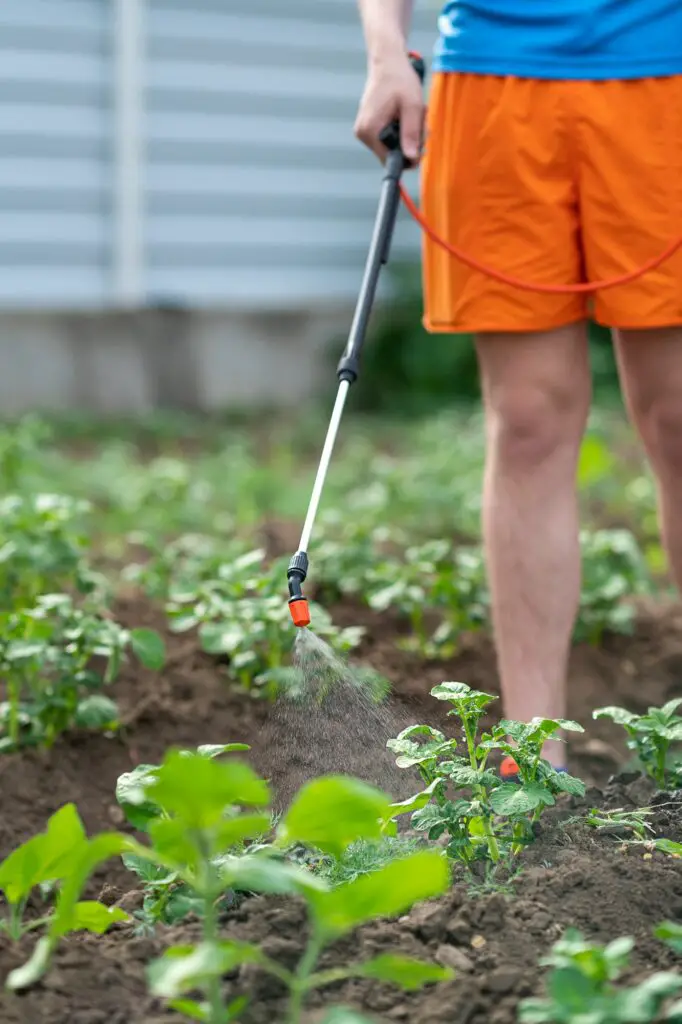
In the realm of potato cultivation, the magic isn’t confined to the seed and soil alone. Nature offers an array of natural substances that can serve as catalysts, propelling your spuds into a sprouting frenzy.
Nature’s Toolbox
- Aspirin: Believe it or not, a humble aspirin tablet can do wonders for sprouting. Crush a tablet and dissolve it in water before watering your potatoes.
- Seaweed Extracts: Rich in micronutrients and growth-promoting hormones, seaweed extracts are like a power smoothie for your potatoes.
- Fish Emulsion: This fish-derived fertilizer is a potent nitrogen, phosphorus, and potassium source.
- Epsom Salt: A magnesium-rich solution like Epsom salt can be a game-changer for your potatoes. Magnesium is a crucial element for photosynthesis and overall plant growth.
- Molasses: A sweet treat for your spuds, molasses is a natural source of carbohydrates and minerals.
These natural substances are like the cheerleaders on the sidelines, rooting for your potatoes to sprout with gusto.




